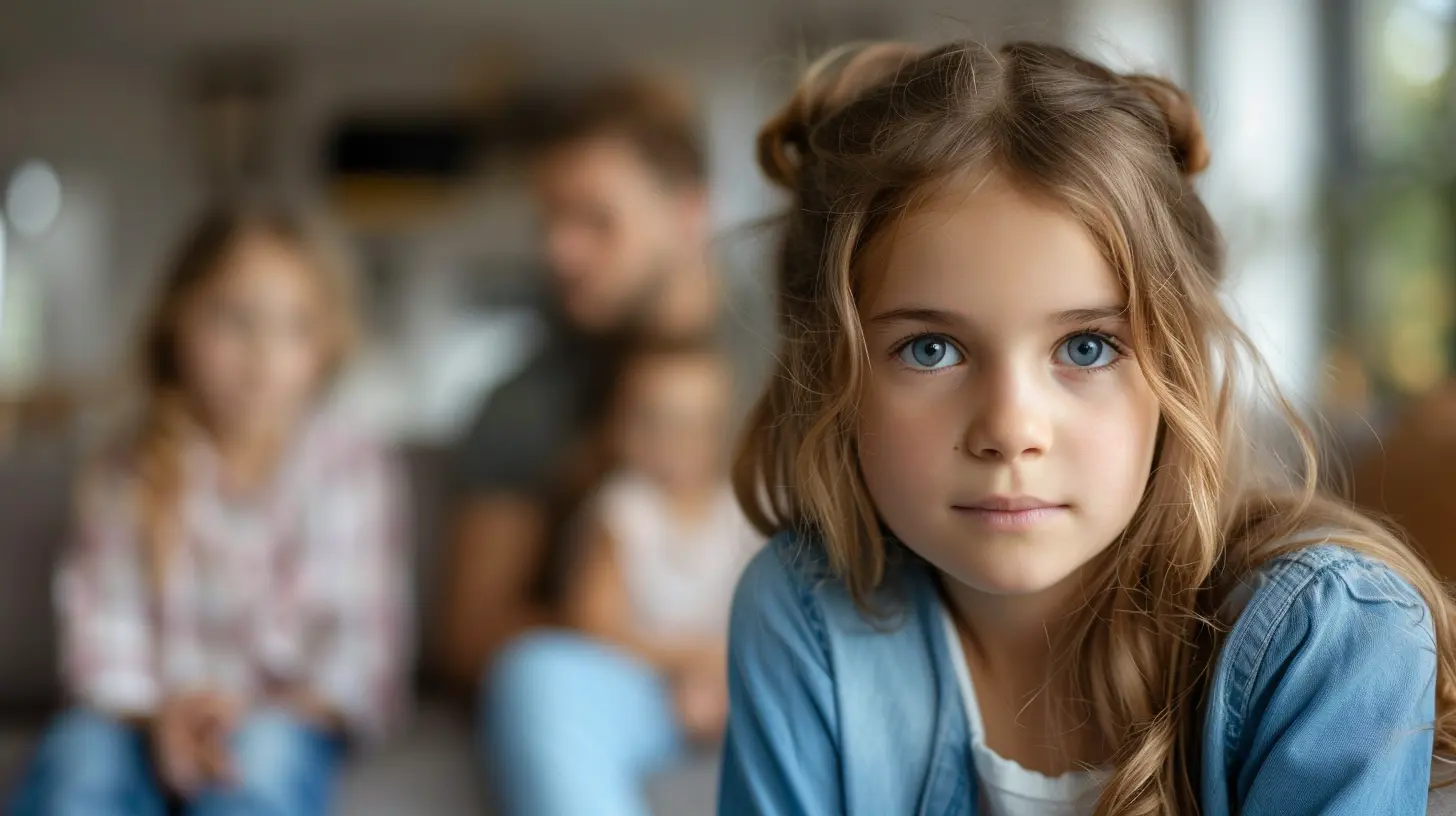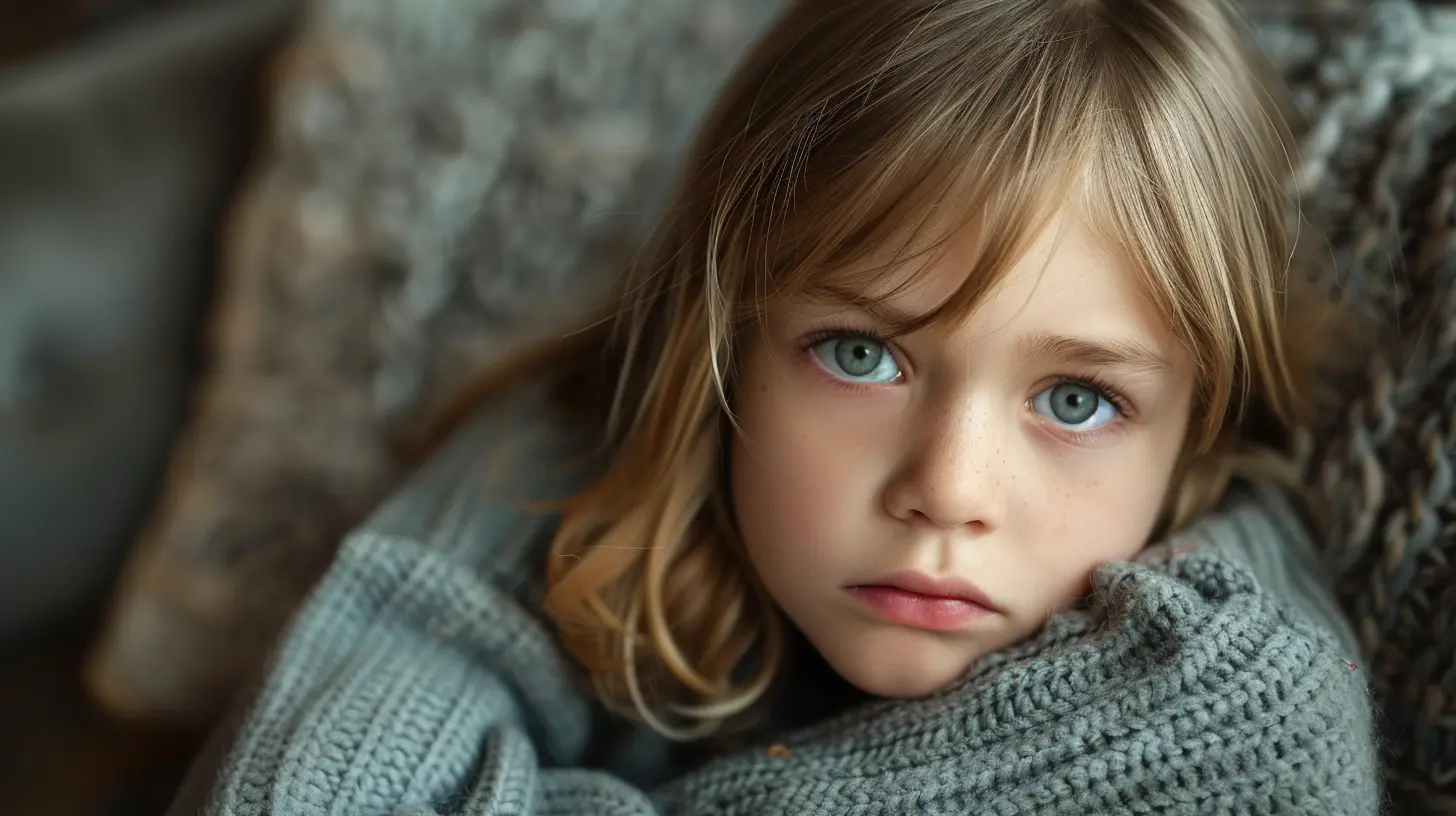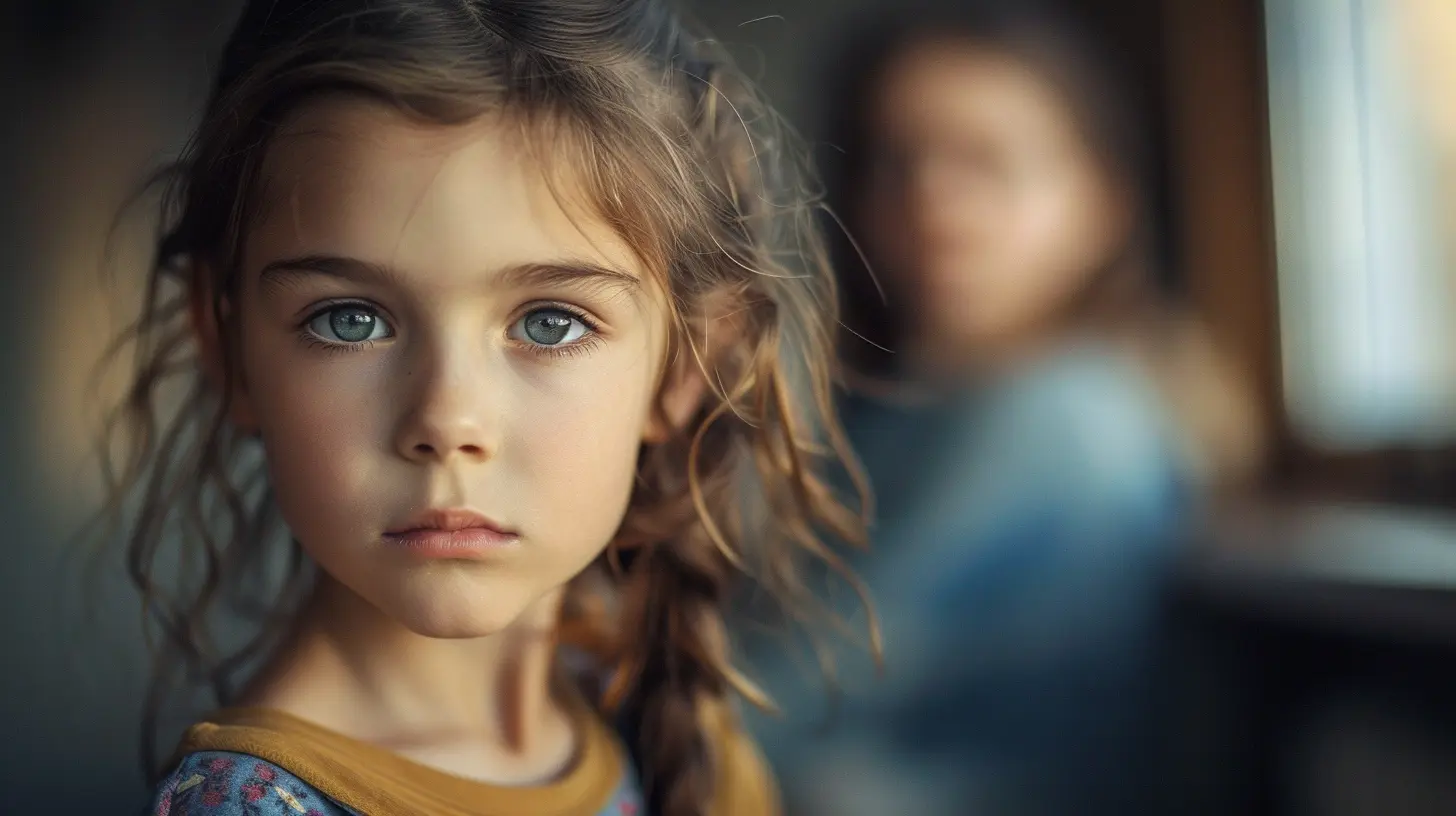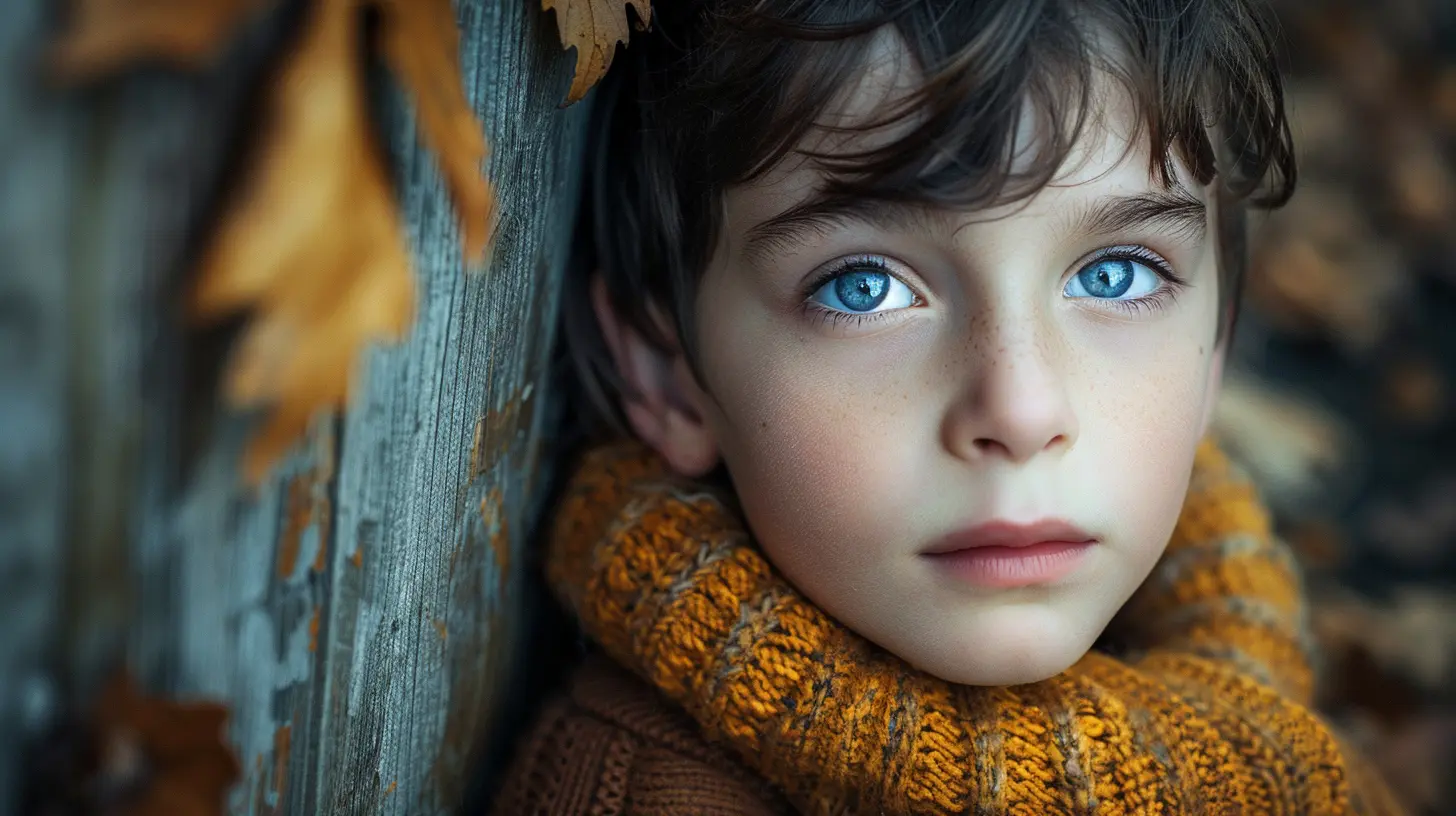The Impact of Divorce on Childhood Mental Health
18 June 2025
Divorce is never easy, not for the couple and certainly not for the children caught in the middle. When parents decide to go their separate ways, it can feel like the ground beneath a child’s feet is crumbling. Their once-stable world suddenly feels unpredictable, and that insecurity can take a toll on their mental well-being.
But does divorce always mean a child is doomed to struggle emotionally? Absolutely not! While it can bring some challenges, understanding its impact and taking steps to support children through it can make all the difference. Let’s dive into how divorce affects children's mental health and what can be done to help them cope.

How Does Divorce Affect a Child’s Mental Health?
Divorce can stir up a whirlwind of emotions for children—fear, sadness, confusion, and even guilt. Every child reacts differently, depending on their age, personality, and the circumstances surrounding the separation. However, some common psychological effects tend to surface in many kids going through parental divorce.1. Emotional Turmoil and Anxiety
Children thrive in stability. When divorce disrupts their routine, it’s no surprise they may feel anxious, unsure of what their future looks like. Where will they live? Will both parents still love them the same way? This uncertainty can lead to excessive worrying and even panic attacks in extreme cases.2. Feelings of Guilt and Self-Blame
Younger children especially tend to see the world through an egocentric lens. They may believe their own actions somehow caused their parents to split. Did they misbehave too much? Were they not good enough? These thoughts, if left unaddressed, can lead to deep emotional distress.3. Depression and Loneliness
Divorce can leave children feeling isolated. One parent moves out, and suddenly, family dinners or weekend outings don’t feel the same. The absence of a two-parent household can sometimes create a void, leading children to experience feelings of deep sadness or even depression.4. Trust and Relationship Issues
Children of divorced parents might struggle with trust—both in relationships and in life in general. If their parents’ love didn’t last, they may start to wonder: Can love ever be permanent? This can create difficulties in forming and maintaining healthy relationships down the road.5. Academic Struggles
A child’s mental state can directly impact their performance in school. If they’re feeling emotionally drained or distracted by family issues, their grades may suffer. Lack of focus, behavioral problems, and difficulty completing assignments are common academic struggles among children going through a divorce.
How Parents Can Help Children Cope
Divorce doesn't have to scar a child permanently. When handled with care and empathy, children can emerge stronger, more resilient, and even develop emotional intelligence from the experience. Here’s how parents can support their children through the transition.1. Open and Honest Communication
Kids need reassurance, and that starts with open, age-appropriate conversations. Let them ask questions, express their feelings, and most importantly, remind them that the divorce is NOT their fault.2. Maintain a Sense of Stability
Change is inevitable during a divorce, but keeping certain routines intact can help children feel safe. Whether it’s school schedules, bedtime rituals, or weekend traditions, stability provides a sense of normalcy.3. Encourage Emotional Expression
Bottled-up emotions can lead to long-term struggles. Encourage children to talk about their feelings, journal, or even express themselves through creative activities like drawing or music.4. Co-Parent Peacefully
Conflict between parents can prolong a child’s suffering. Even if separation was messy, try to maintain a civil co-parenting relationship. Avoid arguments in front of children, and never put them in the middle of adult disputes.5. Provide Professional Support When Needed
Some children may benefit from speaking with a therapist or counselor. Professional guidance can help them navigate their emotions and develop coping strategies to adjust to their new reality.
The Silver Lining: Resilience and Growth
Believe it or not, divorce can actually teach children valuable life skills. Many children of divorced parents grow up to be highly empathetic, independent, and adaptable individuals. They learn how to cope with change, manage emotions, and develop strong problem-solving skills—all of which serve them well in adulthood.While the road may be tough initially, children can, and do, emerge stronger from the experience. The key is ensuring they feel loved, supported, and reassured that no matter what, they still have a family that cares about them.

Final Thoughts
Divorce is undeniably a difficult journey, but it doesn’t have to define a child’s future negatively. With the right emotional support, understanding, and patience, children can navigate this transition with resilience. As a parent or guardian, your role is crucial—be their anchor, their safe space, and remind them that even though family dynamics may change, love remains constant.all images in this post were generated using AI tools
Category:
Psychological Disorders In ChildAuthor:

Eliana Burton
Discussion
rate this article
2 comments
Elsinore Chapman
Divorce can feel like a surprise party thrown by life—unexpected and chaotic! Just remember, even the quirkiest confetti can lead to growth, resilience, and a whole new perspective on joy!
November 16, 2025 at 3:21 AM

Eliana Burton
Thank you for your thoughtful comment! Absolutely, even amidst the chaos of divorce, there can be opportunities for growth and new perspectives, especially for children navigating this transition.
Peter Barlow
Divorce reshapes a child's world, often amplifying anxiety and insecurity. Nurturing supportive environments and fostering open communication can significantly mitigate these mental health challenges.
June 19, 2025 at 4:58 AM

Eliana Burton
Thank you for your insightful comment! I completely agree that fostering supportive environments and open communication is crucial in helping children navigate the emotional challenges of divorce.


